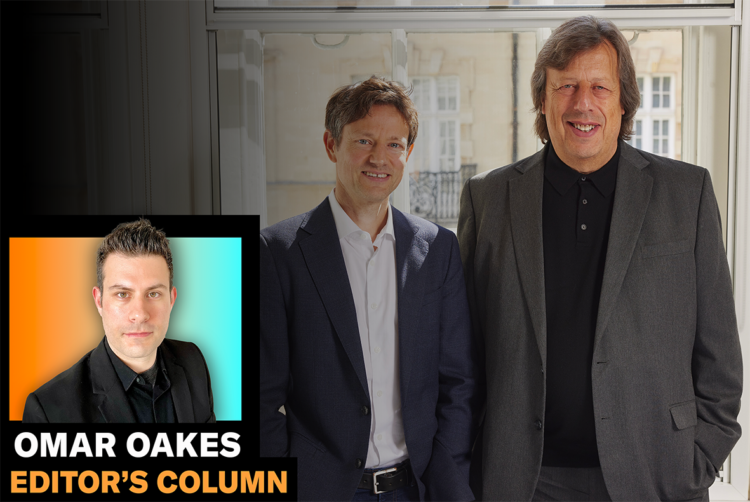Independence D-Day: Expiry date looms for boutique consultancy M&A

Opinion: 100% Media 0% Nonsense
Specialist media consultancies like PwC’s should be in high demand. And yet the market for them could have a quickly approaching expiry date.
“The big question now for MediaSense is how it will use this influx of cash to evolve into a business that offers even more for advertisers when Mediapalooza dies down.
“The trouble is, this may have to happen more quickly than is comfortable. Private-equity companies are not typically known for having long-term patience when it comes to making returns from their investments.”
Nearly three years after I wrote the above in a previous column, MediaSense, majority-owned by Apiary Capital, has made its first major acquisition. It has swooped for the UK media and marketing consulting arm of PwC, led by its sharp frontman Sam Tomlinson, who will become chief client officer at MediaSense after the deal completes on 31 July.
Three years is a long time when you have PE owners, which typically look to sell after four to seven years, depending on the return they expect to get from the overall bag of companies they’ve acquired.
Off the scale
And yet this particular acquisition appears to be tactical rather than strategic, according to sources familiar with both sides of the deal.
If we go back to 2021, when MediaSense inked the PE deal, CEO Graham Brown talked about how Apiary’s access to funds would allow the company to push into other markets and develop its ability to provide global media consultancy for some of the world’s biggest brands.
“We have a relatively small presence in the US and an early presence in India and no presence in the rest of Asia,” Brown told Campaign.
It’s curious that a UK consultancy, whose headcount is similar to that of MediaSense, would be MediaSense’s first buy.
Unless, of course, this was an opportunistic buy.
Terms of the MediaSense/PwC deal have not been disclosed, but sources have told me that MediaSense was certainly not the only potential buyer. However, people familiar with the deal have described MediaSense as keener than most to make a deal, given its desire to scale.
I repeat: private equity is not known for patience.
Conflicting advice
PwC had put Tomlinson’s division up for sale because it had become something of an annoyance.
Yes, it might have grown quickly into a 50-person team since being formally established seven years ago, but media auditing can create conflicts if you’re also advising on how to make brands more sustainable and better-equipped to integrate AI into an organisation. PwC had begun running global media pitches — including the Unilever review that is currently in the works.
While these are big deals in the world of media, there’s always a bigger fish and these consultancies are never short of hunger.
The timing of how this deal came about is also telling.
I understand that PwC effectively started the process for selling the media and marketing division in September 2023. That would be just three months after the US Association of National Advertisers and PwC failed to produce a planned study of that country’s programmatic supply chain. In other words, PwC’s US failed to recreate what the UK team led by Tomlinson acheived: a landmark report in 2020 that laid bare how ignorant our industry is at knowing where the money in automated media buying is actually going.
Here we saw a potential conflict of interest in action: PwC’s US team was appointed by the ANA to audit the programmatic supply chain, but PwC was already the financial auditor of The Trade Desk, a massive supply-side platform and player in programmatic advertising.
PwC also audits WPP, one of the world’s largest agency groups and media buyers. WPP’s agencies are often blocked from pitching for brands’ accounts because of “conflicts”, whereby you can’t work for more than one airline or car brand.
And, incidentally, WPP media agency Mindshare is the incumbent on Unilever, a pitch which PwC is overseeing as a consultant.
How to spend it
MediaSense had secured a majority buyout from Apiary on the basis of there being a premium in this industry for consultancies that can credibly demonstrate independence.
When you’re an advertiser struggling to know the murky details about what media agencies are really doing with your budget or what are the meaningful innovations in marketing versus the new shiny thing, specialist consultancies like MediaSense should be highly desirable.
Its bigger rival Ebiquity is publicly owned and has been rumoured to be on the radar of PE too. MediaLink, even after the acrimonious exit of Michael Kassan, has been bought and sold twice in the last six years. ID Comms and R3, which also provide media consultancy, are likely targets too.
However, that market for boutique media consultancies could have a quickly approaching expiry date.
As technology continues to disrupt the way we keep track of how money is spent in digital media, it also affects how consultancies can give good advice on how to spend it well.
Ashley MacKenzie, founder of adtech platform Fenestra, tells me: “In the new age of programmatic media activation and global real-time bidding, humans aren’t able to assess performance of real-time bidding or follow its complexities — only machines can.”
The ANA/PwC study, which ultimately failed to achieve its objectives, proves that, he explains.
MacKenzie adds: “Further, a PowerPoint deck containing a performance [media] or media buying review — now necessarily one and the same thing — used to take a subject matter expert weeks to write. They are are now created by [AI] in, literally, minutes.”
Editor’s note: This article was amended after publication to include the fact that PwC is WPP’s auditor and to use clearer language that the ANA study was not conducted by PwC’s UK team.
 Omar Oakes is editor-in-chief of The Media Leader.
Omar Oakes is editor-in-chief of The Media Leader.
100% Media 0% Nonsense is a weekly column about the state of media and advertising.




